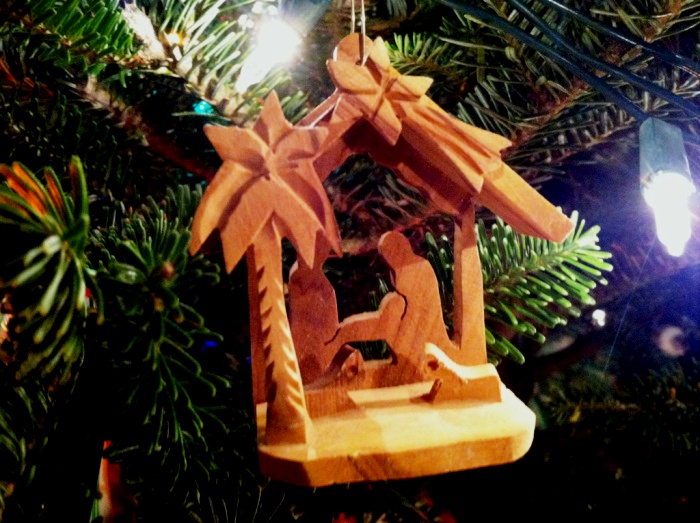I love the essay I’m sharing today from Cindy Brandt. You’ll remember Cindy from her post a couple weeks ago The Gift of Longing to Belong. She offers another gift today in this post filled with wisdom and a reminder that the goal of Christmas, whether we are celebrating in our passport countries or overseas, is not to exit the season “ragged and unraveled”. Rather, we are called to live out the Christmas message in peace and authentic living.
*********************

Christians who are living and working overseas, either in formal missionary roles or informal tentmaker positions, are a high risk group for burnout. I suspect 96.89% of the causes for burnout may be attributed to the month of December. If the holiday season is a traditionally busy time for mainstream culture, with gift shopping, party planning, and end-of-the-year business, it is even busier for those working in the church, a typical flurry of activities surrounding the celebration of the Savior’s birth. To take things a notch more intense, those who have been sent out by the church into the mission field go into hyper drive at this time. It is the one chance out of the year to reach the lost. The stage is set, the ambiance perfect, there is no better time to share the love of Christ and share the tidings of joy. This may be the opportune time to grow your ministry. Supporters are waiting to hear the heartrending stories of Light in the midst of the unreached worlds.
It’s good. People are invited in. Lives are touched by the message of Christmas. The work is worth it. But we are exhausted. Wiped out. While consumerism drives the secular world into a frenzy with pinterest pretty decorations and glamorous bags of gifts, all God’s people are driven ragged with a similar impulse to pack the calendar full of evangelistic events, and we emerge out of the season thankful, but unraveled.
Can it be, that in our fervor to give others the message of Peace, we have left unclaimed the very gift for ourselves?
The holidays are a time when homesickness surge, bringing a fresh pain in the hearts of even the most veteran missionaries. The loss of nostalgic traditions, foods, and smells in a foreign land is acutely felt. Those with little ones feel that stab of guilt for celebrating yet another Christmas away from the children’s doting grandparents. It is a time for self-care. A time to take a deep breath, for meditating on the coming of Christ, the very reason Christians are out in the field. A time to re-invent old traditions as the diaspora, a group of people living outside of their homeland. A time to borrow the lenses of the local culture and allow it to challenge traditional notions of the spirit of Christmas.
The truth is, much of the way Christmas is celebrated in Christendom misses the mark. Blatant consumerism has corrupted the spirit of gift giving. Corporate greeting card companies have cheapened sacred liturgies and turned seasonal greetings into sentimental fluff. Christmas games, parties, and other activities are products of a modern Western civilization, not necessarily representing the scandal of the Incarnation.
The thoughtful Christian must always unwrap the gospel from Western packaging, because that ultimate Gift incarnates Himself into every culture. My fear is, if local believers see their missionaries practicing certain westernized customs for Christmas while delivering the gospel message, the association becomes inextricably linked and they internalize the idea: to be Christian, one must celebrate Christmas the Western Way.
It is a special season for many missionaries, both in personal nostalgia and in the perceived opportunities for ministry. But there needn’t be such a sense of urgency resulting in jam-packed, non stop activities. December doesn’t have to turn into a blur of back to back events. The work of the Spirit is not rushed, but moves steadily through the rhythm of the entire year.
Persistent love trumps harried programs.
Invite local friends to participate in your family traditions because you care for them, not because they are ministry objects. Open your home to others not for potential newsletter fodder, but because you need friends at this time of the year. Share your customs with them as just that, customs from your own culture, not some hyper-spiritualized practice. Learn the local flavor of Christmas and incorporate some ideas for your family next Christmas. Laugh at the wonder of local children when you offer a gift or a Christmas cookie. Leave space to lament over Christmases left behind in your home country, and find solace in the quirky traditions in this new life. Tell a local friend you are sad and homesick, but that you’re glad you got a chance to meet them.
In this way, Christmas is shared, not imposed upon. The gospel isn’t preached, but lived.

